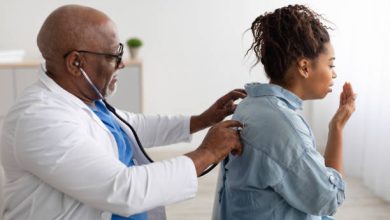6 Essential Steps to Stroke Recovery


About 800,000 individuals in the US experience a stroke per year, averaging to at least one person falling victim to a stroke every time four minutes pass by.
According to the American Stroke Association, strokes are one of the primary causes of disability and among the top five in leading causes of death in the country. For most survivors, many life-altering conditions come as a result – from changes in the ability to move and speak to bowel functionality and more.
With this being said, if you go through a stroke it doesn’t necessarily define your life as over. With proper care and early treatment, you can reduce the overall damage; in fact, victims can even achieve a full recovery.
If you or someone you care about has had a stroke, BlackDoctor.Org is here to offer six essential steps to encourage you on your road to recovery.
RELATED: Post-Stroke Care: What to do After Having a Stroke
1. Post-Stroke Safety Precautions
Several factors can affect the rate at which you recover, such as the kind of stroke, how much your brain got injured, the treatment provided, and your personal health background.
After a stroke, you may feel a sense of weakness, paralysis, problems with coordination, numbness, lack of bowel or bladder control, or even struggle with memory issues.
It is imperative to make your humble abode a safer space for you or anyone who visits that may have been impacted by a stroke. Here are some tips worth considering:
- Put on flat shoes, stray away from heels, and any footwear that’s on the narrow or tight-fitted side
- Take advantage of hand railings whenever going upstairs
- Get rid of any loose rugs, carpets, and mats that could cause someone to trip
- Be on top of taking your medicine and stay vigilant for any modifications in your sleep cycle or diet
- Clear out the pathway to your bedroom, bathroom, and kitchen to avoid unnecessary blockages
- If you still notice warning signs like drooping facial muscles, or speech impediments, call 911 right away
2. Know When To Receive Support & Practice Acceptance
If this is your first time being the victim of a stroke and forging the road to recovery, it might be especially tough for you to come to terms with facing this new reality.
Try your hardest to remain calm and collected, and muster up the mental courage to look at your current circumstances from a



